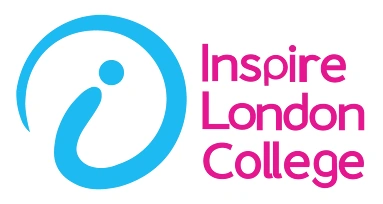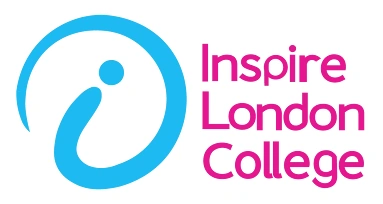Early childhood is a crucial stage in a child’s development. The early experiences a child has can shape their emotional, cognitive, social, and physical growth for life. That’s where Early Years Practitioners play an important role. If you’ve ever considered a career in childcare or early education, understanding the responsibilities and importance of this role is a great starting point.
In this blog, we’ll explore what an early years practitioner is, what they do, their key duties and why their work is so impactful for children and society.
What is an Early Years Practitioner?
An early years practitioner is an individual who works with children from birth to five years old in various settings, such as nurseries, preschools, and early years education centres. What is another name for an early years practitioner? An early years practitioner can also be called as early years educator, childcare worker, nursery assistant, preschool assistant, and early childhood practitioner.
Their primary goal is to support children’s learning and development during this critical phase by providing a safe, stimulating, and nurturing environment. These practitioners work closely with children and their families to ensure each child’s needs are met, helping them to build the essential skills they need before starting formal schooling.
What Does an Early Years Practitioner Do?
An early years practitioner might be someone who has one of the following job titles:
- An early years teacher
- A nanny
- A childminder
- A preschool assistant
Different early years practitioners can have different responsibilities, depending on their specific job role. Some may also have special areas of knowledge or skills. However, many of their tasks can still be similar or overlap with each other.
What is the Difference between a Teacher and an Early Years Practitioner?
Both teachers and early years practitioners work with young children, however; there are some key differences between their roles. Teachers typically focus on formal education and curriculum delivery, whereas Early Years Practitioners focus on providing care, support, and early education to young children in a more nurturing environment. Early Years Practitioners may work in a nursery or preschool setting, while teachers may work in a reception class or other educational setting.
What is the Role of an Early Years Practitioner?
Early Years Practitioners can work in a range of childcare and early education settings. Their roles may vary depending on the environment, level of qualification, and experience.
Nursery Assistant
A nursery assistant helps more experienced staff in looking after babies and young children. This role includes tasks like feeding, changing, playing, and helping with simple learning activities. Nursery assistants are often the starting point for people who are new to working with children and want to gain experience before moving into more senior roles.
Nanny
Nannies care for children in the child’s home, usually offering one-to-one support. They take care of everyday routines, such as meals, naps, and playtime, while also supporting the child’s learning and development. Nannies often work closely with families and may live in or travel with the family, depending on the arrangement.
Early Years Teacher
Early Years Teachers work with children aged 0–5 years and usually have a degree as well as Early Years Teacher Status. Early Years Teachers take the lead in designing learning programs, assessing children’s progress, and supporting a team of staff. Their job is to prepare children for school by helping them develop strong skills in language, social behaviour, and early math.
Childminder
Childminders are self-employed and look after small groups of children in their own homes. Childminders provide a mix of care and early education. Childminders offer a homely setting, which some parents prefer, and may also offer more flexible hours than nurseries. Childminders plan daily activities, take children on outings, and work closely with families.
Duties of an Early Years Practitioner
The duties of an Early Years Practitioner involve many different tasks that contribute to a child’s learning, development, and overall well-being. These professionals play a key part in creating a nurturing environment where children feel safe, supported, and encouraged to explore the world around them. The duties of an early years practitioner are likely to include:
Supporting Early Learning and Development
Early years practitioners play a key role in helping children grow and learn across the seven areas of the Early Years Foundation Stage. These include communication and language, physical development, personal, social and emotional development, literacy, mathematics, understanding the world, and expressive arts and design. As an early year practitioner, your responsibility is to help children develop important skills through games, songs, stories, and hands-on tasks while keeping them curious, active, and creative.
Creating a Safe and Nurturing Environment
Keeping children safe is one of the most important parts of the job. Early years practitioners make sure that the environment is clean, safe, and welcoming. Early Years Practitionersset up the space so children can play and learn without danger. Practitioners also follow strict health and safety rules, carry out regular checks, and follow safeguarding policies to protect children from harm. At the same time, practitioners create a warm and caring atmosphere where children feel happy, secure, and ready to learn.
Observing and Monitoring Progress
Early years practitioners carefully watch how children play, learn, and interact. They make notes on each child’s progress to understand what they are doing well and where they may need extra help. Practitioners can share useful information with parents and other professionals to support the child’s development through accurate record keeping.
Supporting Emotional and Social Development
Young children need to learn how to deal with their feelings and how to get along with others. Early years practitioners help children learn to understand and express emotions, share toys, take turns, and build friendships. They encourage positive behaviour, kindness, and respect. With a calm and caring environment, early years practitioners help children build confidence, self-esteem, and important social skills that will help them throughout life.
Working Collaboratively with Parents and Guardians
Parents and guardians are a big part of a child’s learning journey. Early years practitioners work closely with families to support each child’s growth. Practitioners regularly talk to parents about how their child is doing and may share photos, reports, or notes. They also give helpful tips and ideas for learning at home.
Planning and Delivering Engaging Activities
A big part of an early years practitioner’s job is to plan educational activities that help children learn and grow. These activities should match the children’s age and stage of development. As an Early Years Practitioner, you can include things like storytelling, painting, drawing, singing songs, playing musical instruments, and outdoor play like running, jumping, or exploring nature. Activities are carefully planned to help with things like language, math, physical skills, social interaction, and creativity.
Child Supervision
Early years practitioners are responsible for keeping children safe at all times. This includes closely watching them during play, rest, and meal times to prevent accidents and ensure they are happy and secure. Early years practitioners also create a safe and welcoming environment where children feel confident to explore.
Health and Hygiene in Childcare
Promoting good hygiene is a key part of the job. Practitioners teach children how to wash their hands properly, use tissues, and follow healthy habits. Early years practitioners also make sure the environment is clean, follow food safety rules, and support children in developing healthy routines, such as eating well and getting enough rest.
Behaviour Management
Practitioners help positively guide children’s behaviour. They encourage kindness, sharing, and good manners. When children struggle with their behaviour, practitioners use calm, supportive methods to help them learn how to manage their feelings and get along with others.
How to Become an Early Years Practitioner?
You will need to acquire the necessary skills and knowledge in early childhood education to become an early years practitioner. This can be achieved by enrolling in a course that covers topics like child development, play-based learning, and inclusive practices. Inspire London College offers a range of qualifications in early years education that can help you achieve your goals. With expert instructors, hands-on training, and flexible online course schedules, you’ll be well on your way to becoming a qualified Early Years Practitioner. Explore Inspire London College’s courses today and start your journey to a rewarding career in early childhood education.









